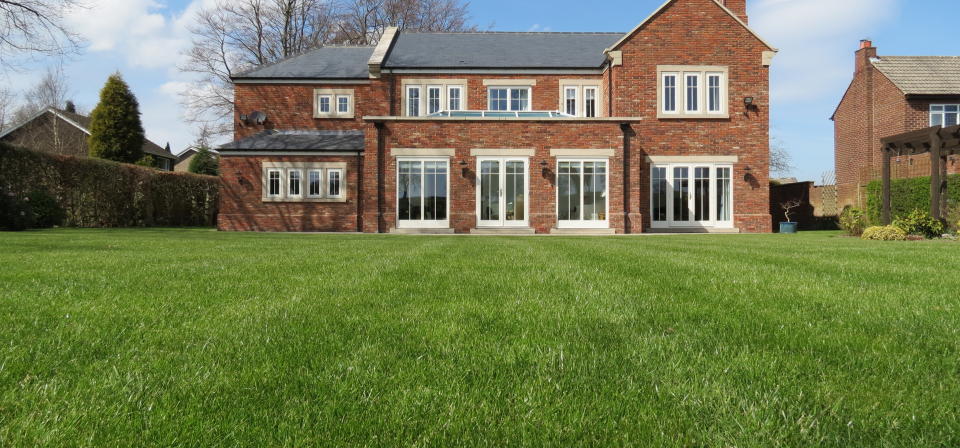Worm Casts
Earthworms play an important role in the development and maintenance of soil structures. Some species live in burrows that can be several feet deep and this can provide useful aeration of the soil. As they play out their lives, for the most part hidden away from us, worms consume large quantities of soil and decaying plant material from which they obtain all of their nutrition.
The waste material, a well mixed, highly fertile compost, is excreted in the form of 'convoluted tubes' which we refer to as worm casts, but not all worms excrete their casts on the surface.
Of the 25 species found in UK turf, only 3 are known to deposit surface casts. The remaining 22 species release their casts underground, so avoiding all of the mess and misery experienced by home owners.
Although most earthworms feed on decaying plant roots and organic matter found below the soil surface, the surface casting species (surface feeders) will also collect leaf material from above ground and take it down into the burrows where it will be eaten.
So how can we help to prevent this from happening?
Beginning with cultural practices, the first thing that comes to mind is to remove the source of freely available food and that will involve collecting grass clippings when mowing and removing fallen leaves from surrounding trees in the autumn.
We are all aware that the activity of worms can be very beneficial to the overall texture of the soil. The downside is that in clearing their burrows at certain times of the year, (mainly October to late February dependant upon soil moisture levels) worms leave a cast (a small mound of sticky soil) on the surface of the lawn. The casts play havoc with mowing practices, making lawns messy and ultimately encourage weeds and weed grasses, (annual Meadow Grass in particular, as it sets seeds all year round).
The advantages of having worm activity in the soil are many as they:
• break down organic matter to humus, so improve the soil fertility
• Improve the crumb structure
• aerate the soil - only deeper burrowing types
• only cast for around 6 months of the year - Early October to March
• reduce compaction
• eat decaying leaf litter like grass clippings that would otherwise turn into thatch
• improve surface drainage
• reduce toxic gases in the soil
• increase the activity of soil bacteria
The disadvantages of having worm activity in the soil -bearing in mind that it is not the worms that are the problem, merely the effects of their casts on the lawn, is that casts:
• are unsightly and numerous
• get stuck onto the soles of shoes and are slimy and sticky
• are a problem for machinery as they damage the bottom blades of mowers and can alter the height of cut as they attach easily to mower wheels and rollers
• can smother finer leafed grasses
• can encourage weed seeds and germination
• are expensive to control
• can produce an uneven lawn surface
• will, in time, ruin lawns
TREATMENT CONTROL
Where cultural methods of prevention have been exhausted, in practice the best alternative control is applying a worm "suppressor" treatment (Greener Lawns - Castiron) from early October through to late February when the worms are visibly active and becoming a bit of a pest. The Castiron treatment will drive the surface feeders deeper into the soil preventing them from casting after an initial period of reduced cast production.
The casts already on the surface of the turf just prior to application will need to be harrowed or brushed off. The suppressor control will typically last between 2 - 3 months dependant upon rain fall, soil type and worm population density.
If your lawns are on a really heavy soil such as clay, you may need to plan to have them sprayed by us twice, once in October and again after in January to gain a 'clean' surface.
For a no obligation quotation please contact us on: 01670 481148.


